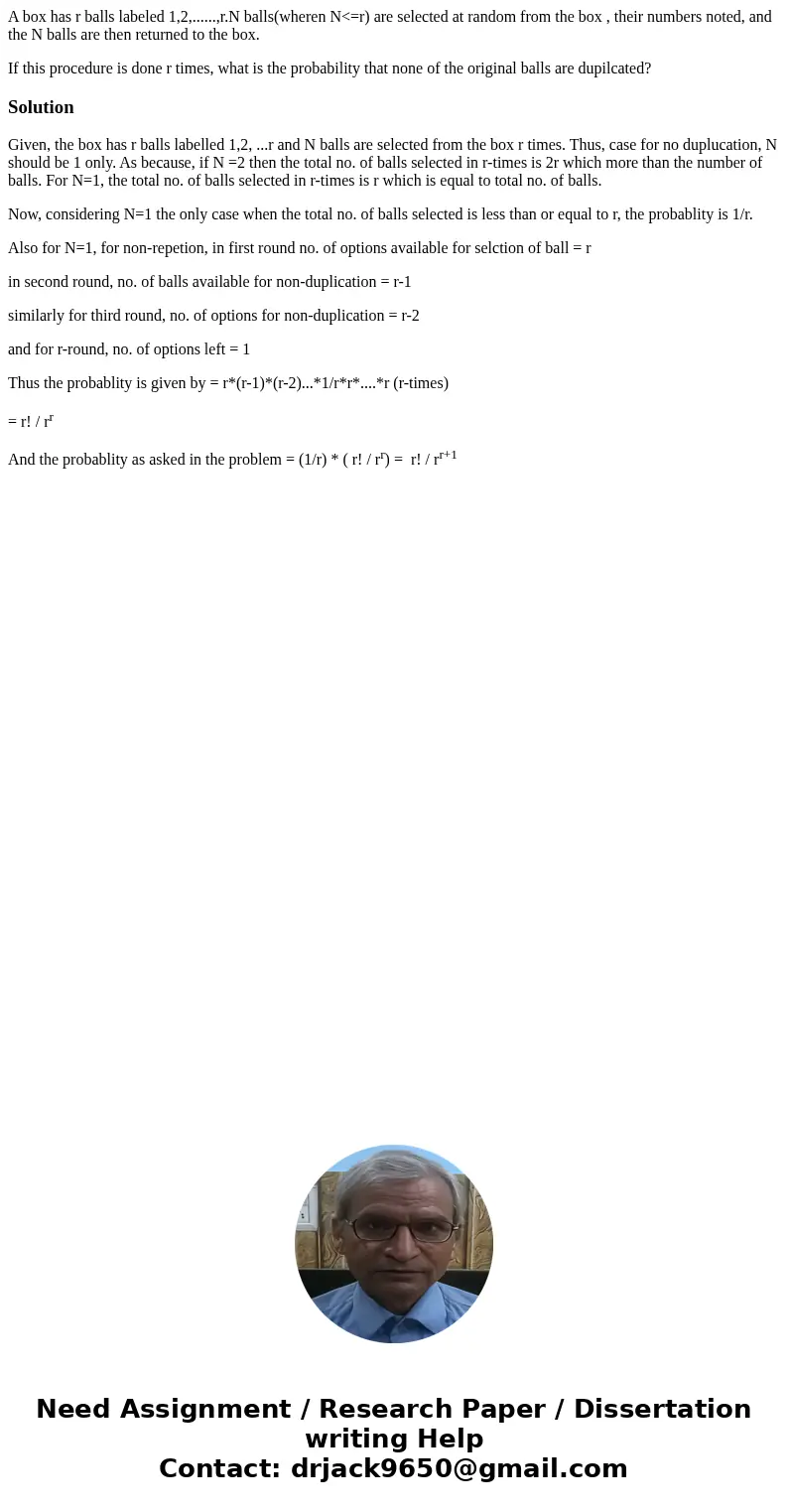A box has r balls labeled 12rN ballswheren N
A box has r balls labeled 1,2,......,r.N balls(wheren N<=r) are selected at random from the box , their numbers noted, and the N balls are then returned to the box.
If this procedure is done r times, what is the probability that none of the original balls are dupilcated?
Solution
Given, the box has r balls labelled 1,2, ...r and N balls are selected from the box r times. Thus, case for no duplucation, N should be 1 only. As because, if N =2 then the total no. of balls selected in r-times is 2r which more than the number of balls. For N=1, the total no. of balls selected in r-times is r which is equal to total no. of balls.
Now, considering N=1 the only case when the total no. of balls selected is less than or equal to r, the probablity is 1/r.
Also for N=1, for non-repetion, in first round no. of options available for selction of ball = r
in second round, no. of balls available for non-duplication = r-1
similarly for third round, no. of options for non-duplication = r-2
and for r-round, no. of options left = 1
Thus the probablity is given by = r*(r-1)*(r-2)...*1/r*r*....*r (r-times)
= r! / rr
And the probablity as asked in the problem = (1/r) * ( r! / rr) = r! / rr+1

 Homework Sourse
Homework Sourse